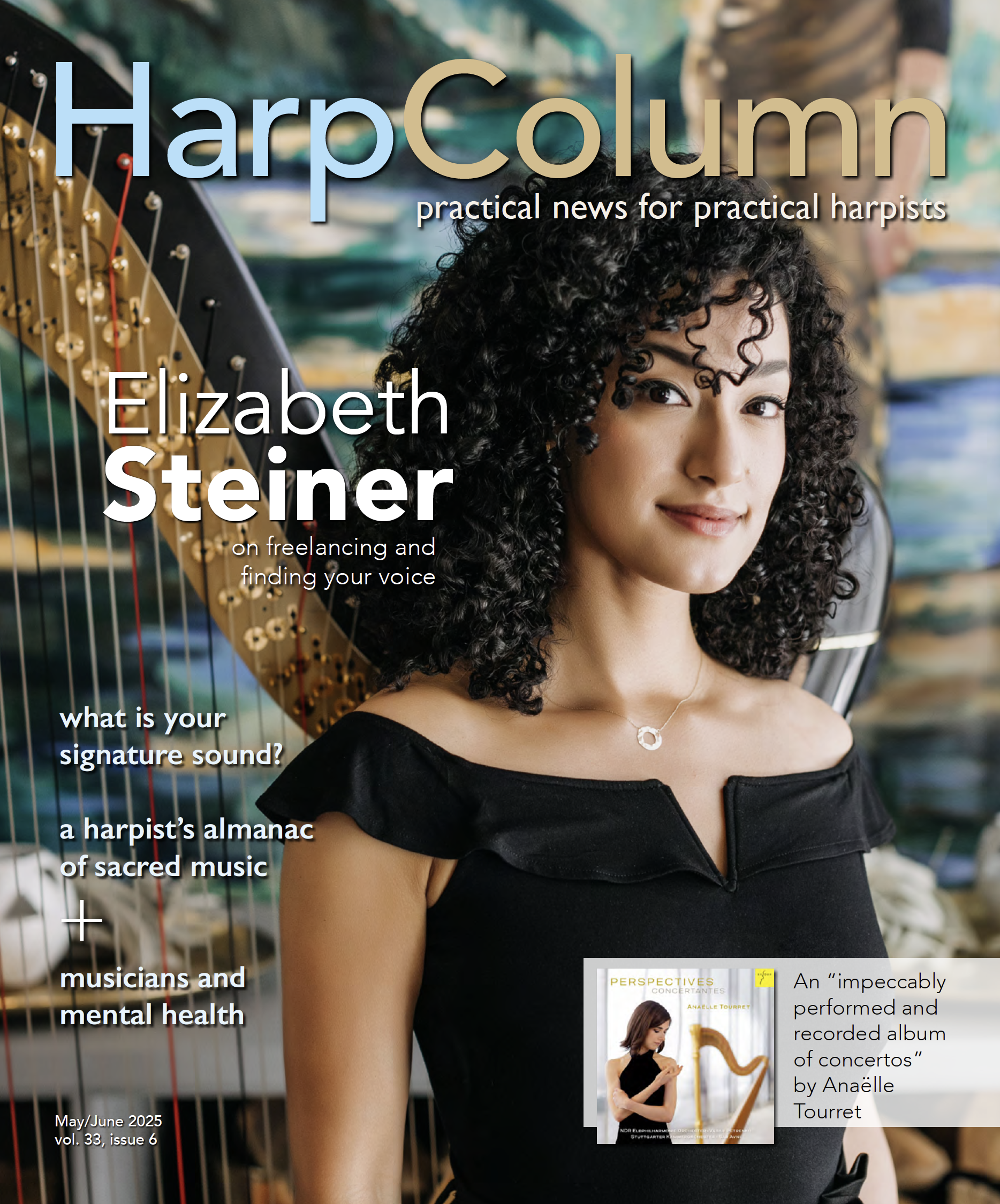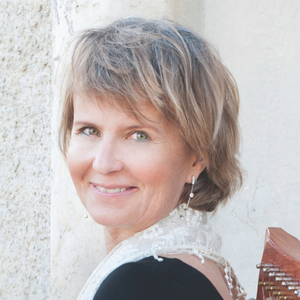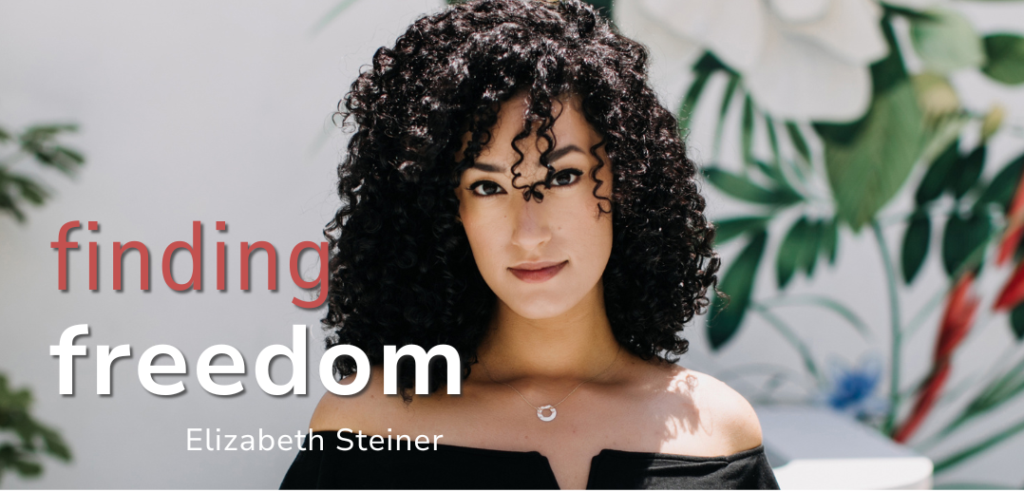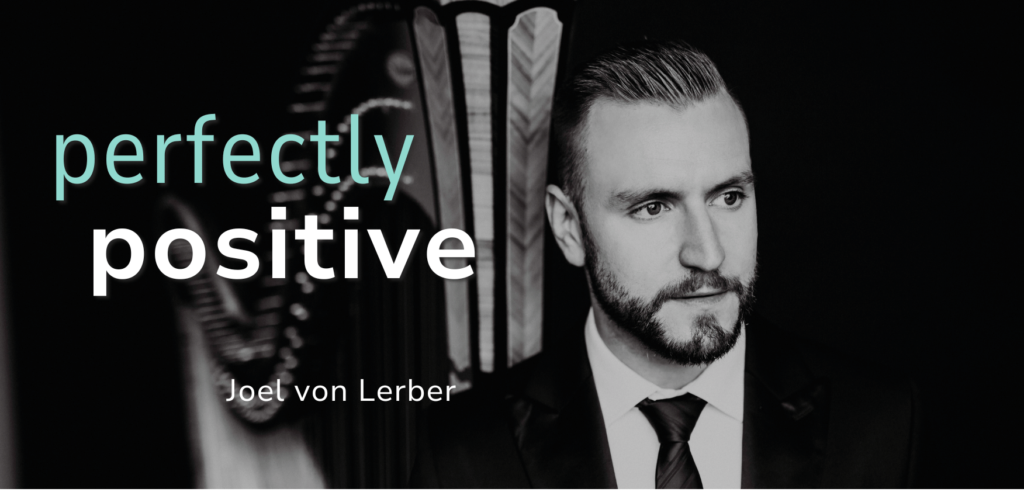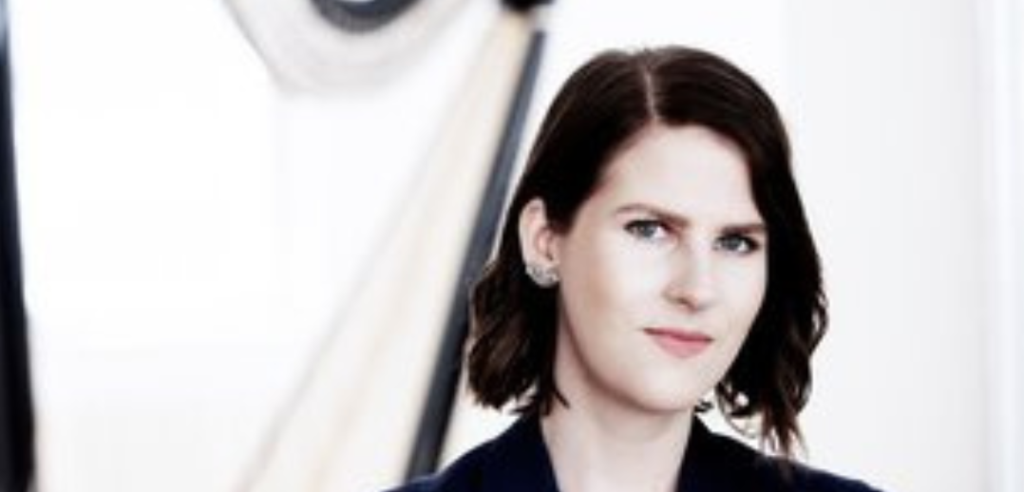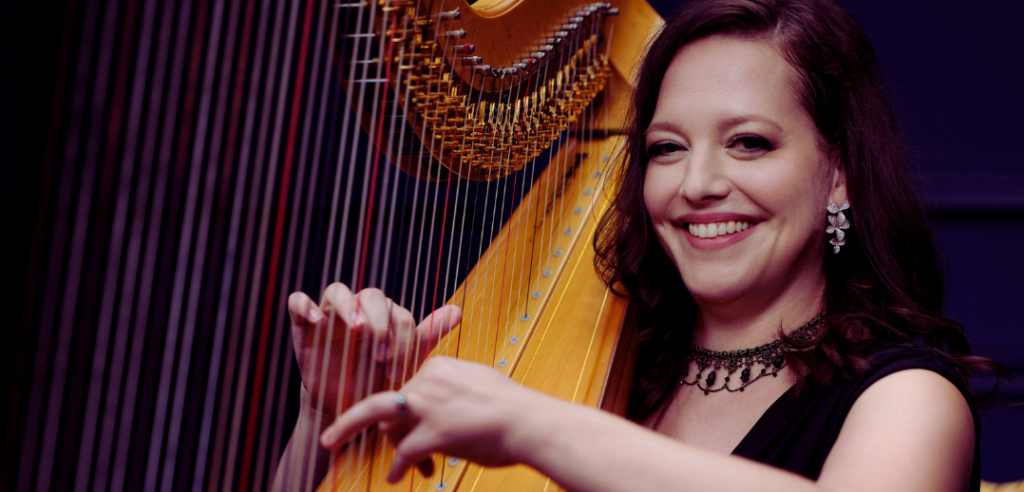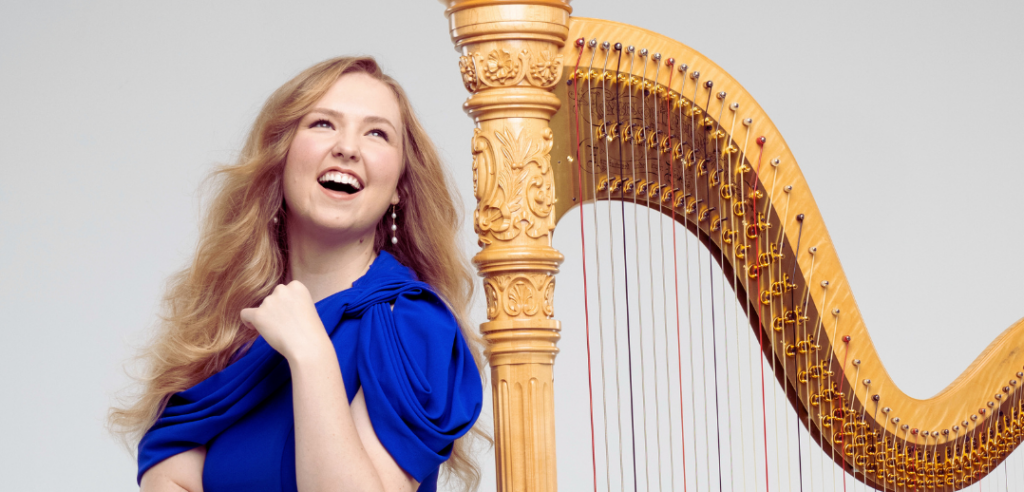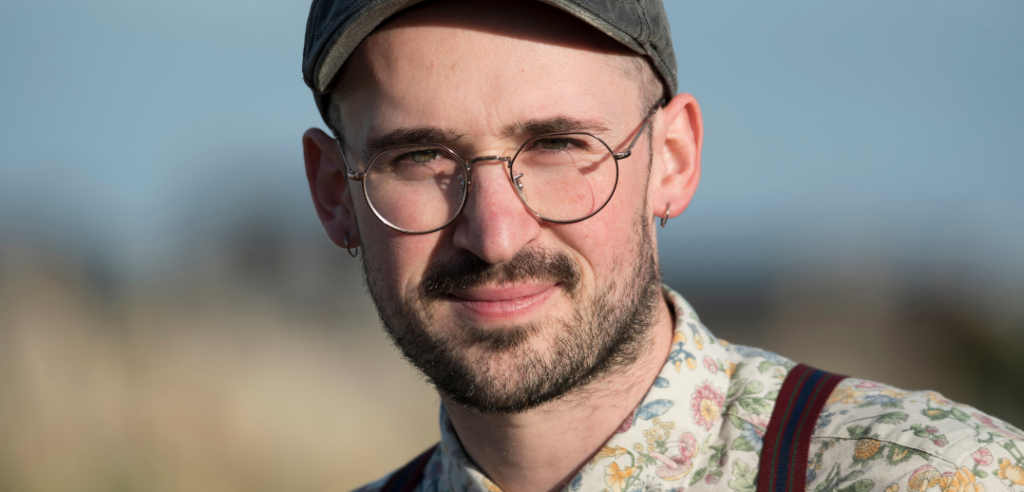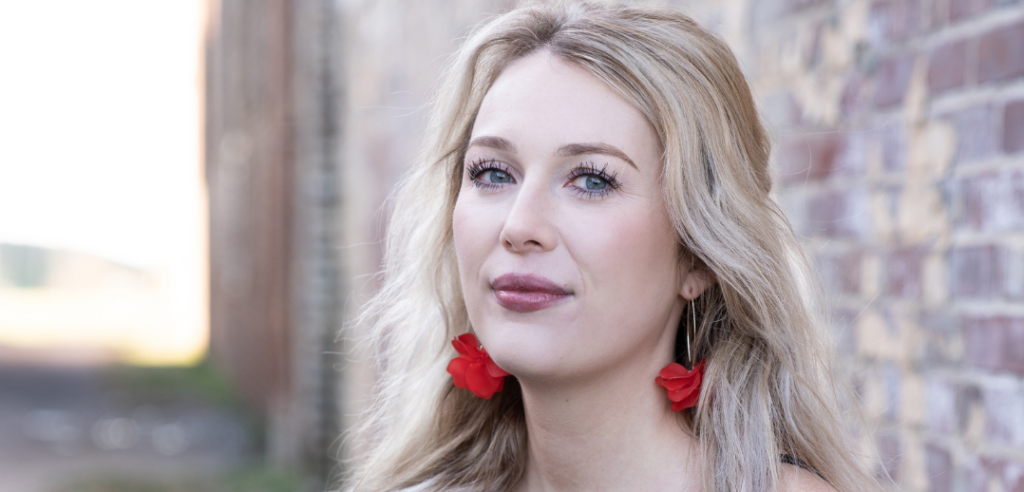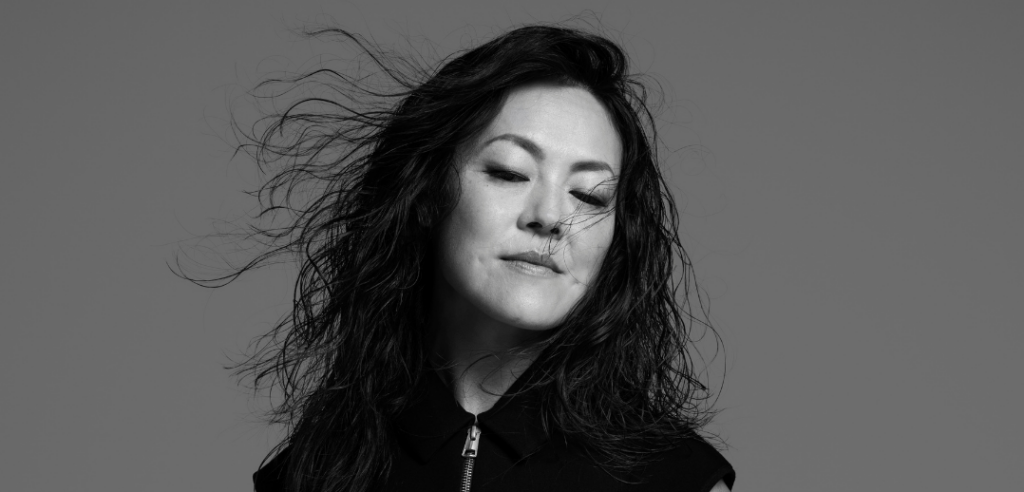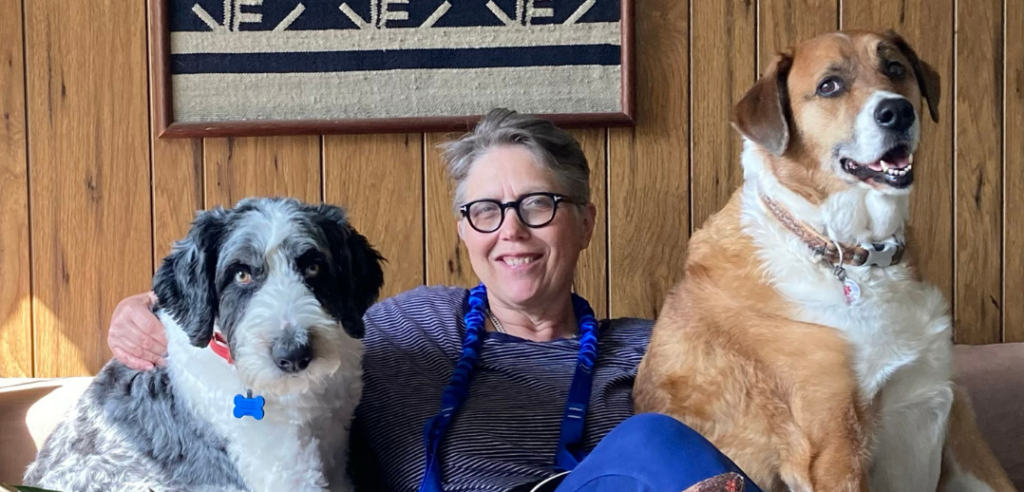Don’t miss our interviews with Second Prize winner Joel von Lerber and Third Prize winner Marina Fradin in this issue.
Lenka Petrovic is beautiful, young, and talented. At the age of 23, she is the winner of the highly coveted first prize at the International Harp Contest in Israel, held in October in the city of Akko. She is still finishing her studies at Juilliard and will be ready to enter the world stage with the wind at her back. I interviewed Lenka via Skype after she flew back to New York following the competition. She was still basking in the afterglow of her prize. I was so impressed with the way she spoke so highly of all her teachers. She was overflowing with compliments and appreciation. I wonder if we should give more awards to teachers. They are often the unsung heroes of a harpist’s success.

Harp Column: Congratulations! You played beautifully. You also put Serbia on the map for harpists.
Lenka Petrovic: Thank you! It was the first time in history that there were three harpists from Serbia at the Israeli Contest. Nadja Dornik and Andjela Stankovic also competed. All three of us passed to the second stage. This was a big deal for us and for all the harpists in Serbia.
HC: Did your parents come to Israel with you?
LP: I travelled by myself, but I didn’t feel alone. Andjela, Nadja, and I supported each other. There were also harpists that I knew from other festivals and contests. It was actually a very nice atmosphere between the harpists in Akko.
HC: How do you believe winning the contest will help your career?
LP: I will have my own instrument! This is a dream come true, because I don’t own a harp. This is a win already. I am looking forward to the concert tours and performances and am so honored to be on the list of winners. It is really an incredible list. My teacher, Nancy Allen, won the fifth Contest in 1973. I am sure that it helped launch her career.
HC: What made you decide to compete in the International Harp Contest in Israel?
LP: Competing in the Israeli Contest has always been a goal of mine because some of the greatest harpists of our time have won. My teacher in Serbia had also competed in the International Harp Contest in Israel, and she encouraged me to enter both the Israeli Contest and the USA [International Harp] Competition because she felt these are the most difficult. We both agree that contests are an important way to improve your level of playing and also have the chance to hear how other people around the world play. You can learn so much from listening to others. I actually like the intensity of these competitions. There is so much interesting music to learn.
HC: You had to spend countless hours working on the repertoire. I have found that many of the winners selected their particular year to compete based on the required pieces. Did you enjoy working on the music for the Contest?
LP: Yes. I liked the Haydn the most and found it very interesting to play his music on the harp. I love the classical period, and I, of course, loved performing the Boieldieu Concerto. I found the piece Around the Clock by Pearl Chertok to be the most challenging, because I don’t often play jazz or popular music. Nancy Allen really helped me loosen up on this piece.
HC: How did you handle the pressure of competing?
LP: I learned that the trick for staying focused and calm is to never listen to anyone before you perform. Before each stage in the contest, I tried to find a place to be alone. It is important for me to focus all my attention on my music. I also try to sing my piece in my mind before performing. When I sit behind my harp, I just share the music. I like to think that people can tell if you are well prepared. But I try not to think about how I will be judged. I try my best to be genuinely thankful to be there at that moment and to thank the audience for listening. Gratitude is important. I try to live by that and think of every competition as a performance and give it my best effort. I focus on the music first, then the audience, and only then myself as a performer.
In Serbia, every second year we have a national harp competition and an international competition. I was always competing. It was something most of the harp students did. This made competitions not so scary for me, and, in fact, they were a very important learning experience. I always saw competitions as a goal. You perform and then start new repertoire.
HC: Please tell us more about your background. How did you start to play the harp?
LP: In Serbia, the public [free] music schools have instruments that students can play. You can just pick your instrument. My mother played the harp when she was young, and one day she met her old teacher in the street. She told my mother that she was looking for more harp students. My brothers weren’t interested, but I was curious and went to the music school. I was 8 years old, and I still remember my first lesson. My teacher made learning the harp fun. I was very lucky from the beginning to have wonderful teachers and mentors. My first teacher was Zlatka Milenkovic, and she taught me for the first four years. She was replaced by her former student, Stasa Mirkovic Grujic. I studied with her all the way through high school.
In elementary music schools you have two instrument lessons and two solfege classes per week, from the very beginning. You go to these classes separate from your regular elementary school. When you finish elementary school you can choose to continue going only to a music high school, like I did, or to go parallel to both music and regular academic high schools. This can be exhausting, but there are people doing it. Because music schools offer both elementary and high school programs in one building, when you enroll in high school you continue studying with the same instrument teacher you studied with at elementary school.
HC: How did you study and practice all these years without owning your own harp?
LP: The public music schools in Serbia have harps, and you can practice at school. Most of the schools have old Russian [Lunacharsky] harps. The school I went to, Music School Stankovic in Belgrade, had two Lunacharsky harps, but one of them we used only for performances. There was one harp room in the school building where all the lessons and practicing happened for all the harp students. We were about 10 harp students of all ages. The school was open for practicing from 7 a.m. to 10 p.m. I had to wake up early and stay up late. At the university in Novi Sad, we had a new Camac Atlantide, and we would divide up the practice time between ourselves. I feel very lucky to have had this opportunity. I was able to study all these years without owning my own harp.
HC: How old were you when you knew that you wanted to become a harpist?
LP: When I finished elementary school, I had to decide between attending a music high school only or attend both a regular and music school. This was the turning point. My teacher, Prof. Mirkovic Grujic, encouraged me to attend the music high school. It is like studying at a conservatory, where the other academic studies have less importance. She convinced me to focus on music. I love the harp and have no regrets. I am happy being a harpist.
After high school, I wanted to continue to study with Prof. Mirkovic Grujic. I moved from Belgrade to Novi Sad where I studied at the university. The harp class at the Academy of Arts in Novi Sad was founded by Ion Ivan Roncea in 2006. He won the International Harp Contest in Israel in 1976.
HC: You have spent so much of your life practicing and performing the harp. How did you stay so focused year after year?
LP: There was always something new to learn, and I always found joy in studying music. I was very inspired by my teacher in high school. She was enthusiastic and introduced me to so much beautiful music. It was a dream of mine to reach a high enough level so that I could perform this music. My family was always supportive. I come from an artistic family. My mother is a curator at a cultural center in Belgrade, and my father is a painter.
I was young when I first heard the concerts at the International Belgrade Harp Festival. It was established in 2002 and has become one of Belgrade’s most important musical events. The festival has invited some of the world’s leading harpists to perform: Isabelle Moretti, Park Stickney, and Catrin Finch, just to name a few. Going to these concerts, lectures, and masterclasses was very inspiring to me as I was growing up.
In 2014, Ms. Irina Zingg awarded me a scholarship for HarpMasters Summer Academy in Switzerland, which I attended in 2014 and 2015. It was an amazing experience for me, and I would recommend it to all young harpists.
HC: Tell us more about your studies.
Israel Contest Connection
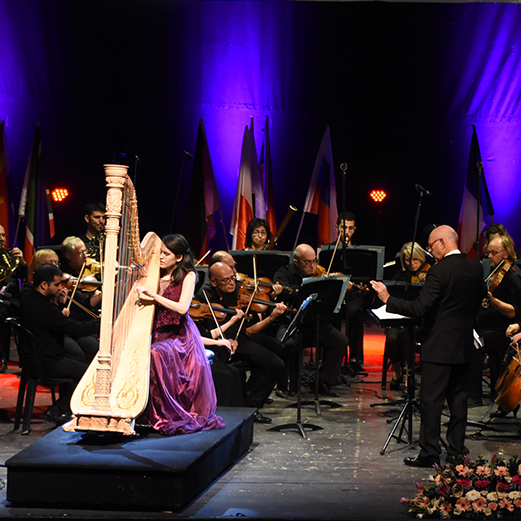
Winners of the International Harp Contest in Israel
1st Contest 1959: Susanna Mildonia, Belgium
2nd Contest 1962: Lynn Turner, U.S.A.
3rd Contest 1965: Martine Geliot, France
4th Contest 1970: Chantal Mathieu, France
5th Contest 1973: Nancy Allen, U.S.A.*
6th Contest 1976: Ivan Ion Roncea, Romania*
7th Contest 1979: Emily Mitchell, U.S.A.
8th Contest 1982: Alice Giles, Australia
9th Contest 1985: Naoko Yoshino, Japan
10th Contest 1988: Isabelle Moretti, France
11th Contest 1992: Marie-Pierre Langlamet, France
12th Contest 1994: No First Prize Winner
13th Contest 1998: Gwyneth Wentink, The Netherlands
14th Contest 2001: Letizia Belmondo, Italy
15th Contest 2003: Varvara Ivanova, Russia
16th Contest 2006: Sivan Magen, Israel*
17th Contest 2009: No First Prize Winner
18th Contest 2012: Anaïs Gaudemard, France
19th Contest 2015: Yuying Chen, China
20th Contest 2018: Lenka Petrovic, Serbia
LP: I was fortunate to have really dedicated teachers. Prof. Mirkovic Grujic was very enthusiastic and inspiring. If it wasn’t for her encouragement, I wouldn’t have done so many things. She is very musical and is always discovering new ways to interpret the music. We worked very hard together, and she really believed in me. Her support was invaluable to me, and she pushed me to learn more music. She prepared me for the USA International Harp Competition [in Bloomington, Ind.]. I competed in 2016 and won third prize. It was in Bloomington that I met Nancy Allen. I returned to Serbia for my final year at university and auditioned for Juilliard. I knew that I wanted to continue my studies there with Nancy Allen. I was accepted and started studying in the fall of 2017. I will graduate in May.
Nancy Allen has been such a caring person to me. I had only been to the U.S.A. once, for the harp competition, before I arrived to study at Juilliard. I received such wonderful support from her and the other students. Everyone has been so kind to me. I really appreciate the way Nancy Allen helps her students find their own path. She never wants us to copy her but to find our own unique voice. I was a New Horizons fellow at the Aspen Festival and School last summer. Our harp faculty was Nancy Allen and Sivan Magen. Sivan is such an inspiring musician, and he helped me prepare for this competition. He won the 16th Israel Contest in 2006 and was a joy to study with.
HC: What do you enjoy doing when you are not playing the harp?
LP: The biggest part of my life is music. I enjoy classical music—there is so much repertoire to learn. In my free time I listen to music and spend time with friends and family. I also enjoy relaxing and being alone. It has been quite a change for me to leave Serbia to study in the United States.
HC: What are your plans after graduation?
LP: I am thinking of applying for more graduate studies. As a student, I have the most time to work on repertoire. I hope to learn as much as possible now and stay in the States for at least a few more years.
HC: What is your dream job?
LP: My dream is to be a harpist of course. What I enjoy most is performing solo, although after spending last summer in Aspen, I am more interested in the orchestral repertoire. I also look forward to teaching. I would like to pass on what I have learned to the next generation. My teachers were very important to me, and I would like to continue this legacy. •
The french connection in Serbia
A brief history of the harp in Serbia
In 1937, Nicole Anckier-Casteran founded the harp class at the Faculty of Music in Belgrade. She won Premier Prix at the Paris Conservatory at the age of 16 and was a student of Alphonse Hasselmans. During WWII, Ms. Anckier-Casteran was expelled back to France. Her student Josip Pikelj took over the harp class, but for several decades there were very few harps, and the economic conditions were also difficult.
A turning point came in 1975. Milica Baric became the new harp professor. The university was able to buy two more instruments, and the interest in the harp began growing. There are a number of Russian harps in the music schools in Serbia, in part due to the friendship between Milica Baric and the Russian harpist, Vera Dulova. Today, the harp is taught in music schools in seven cities across Serbia. There are approximately 15 professional harpists who live in Belgrade and around 30 in all of Serbia, including those who currently live abroad.
The Harp Association of Serbia was established in 2000 to promote the harp throughout Serbia. Professor Milica Baric was the first president. The Association’s biggest success has been the establishment of the International Belgrade Harp Festival in 2002. It has inspired a new generation of extraordinary harpists.




